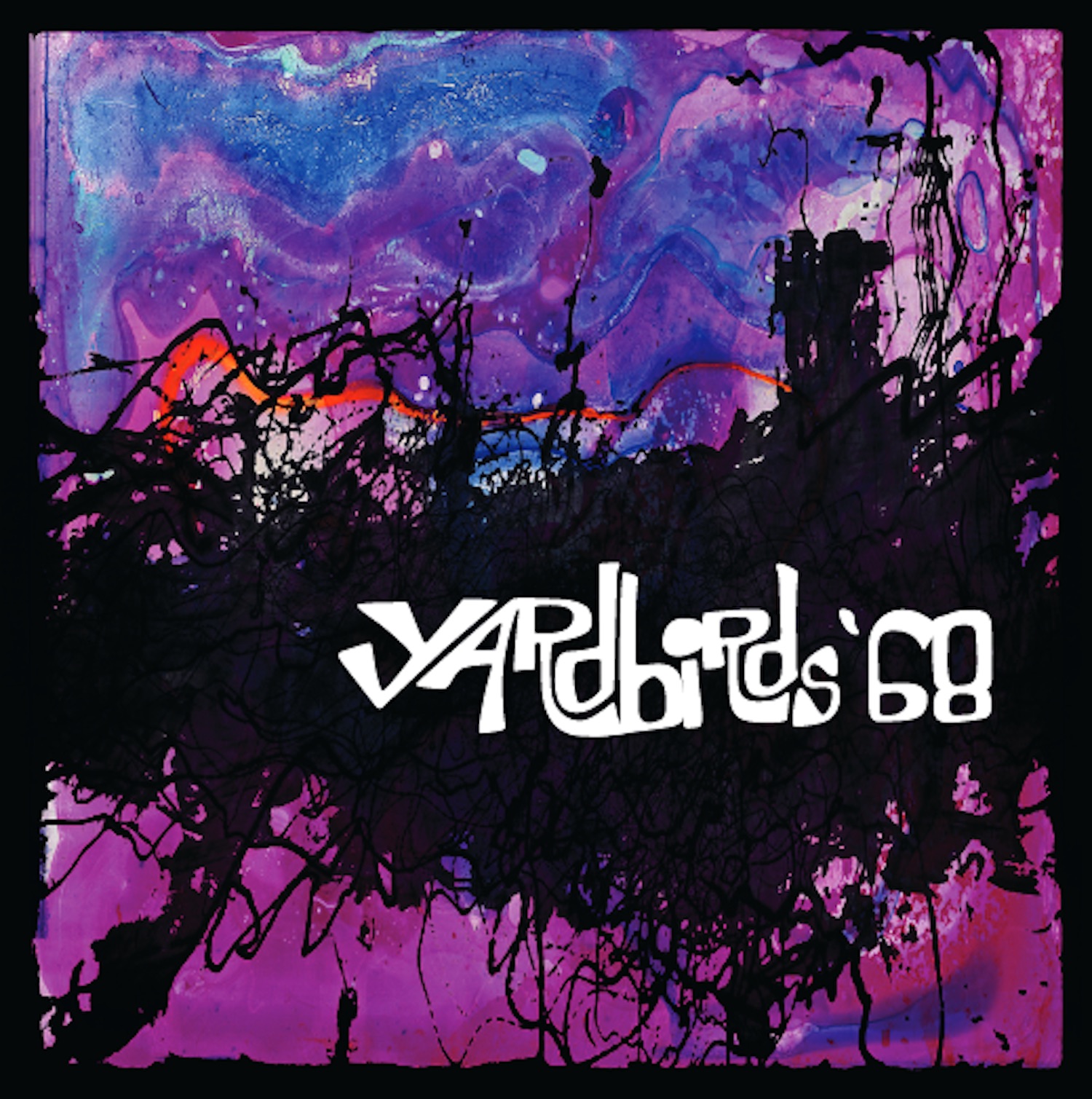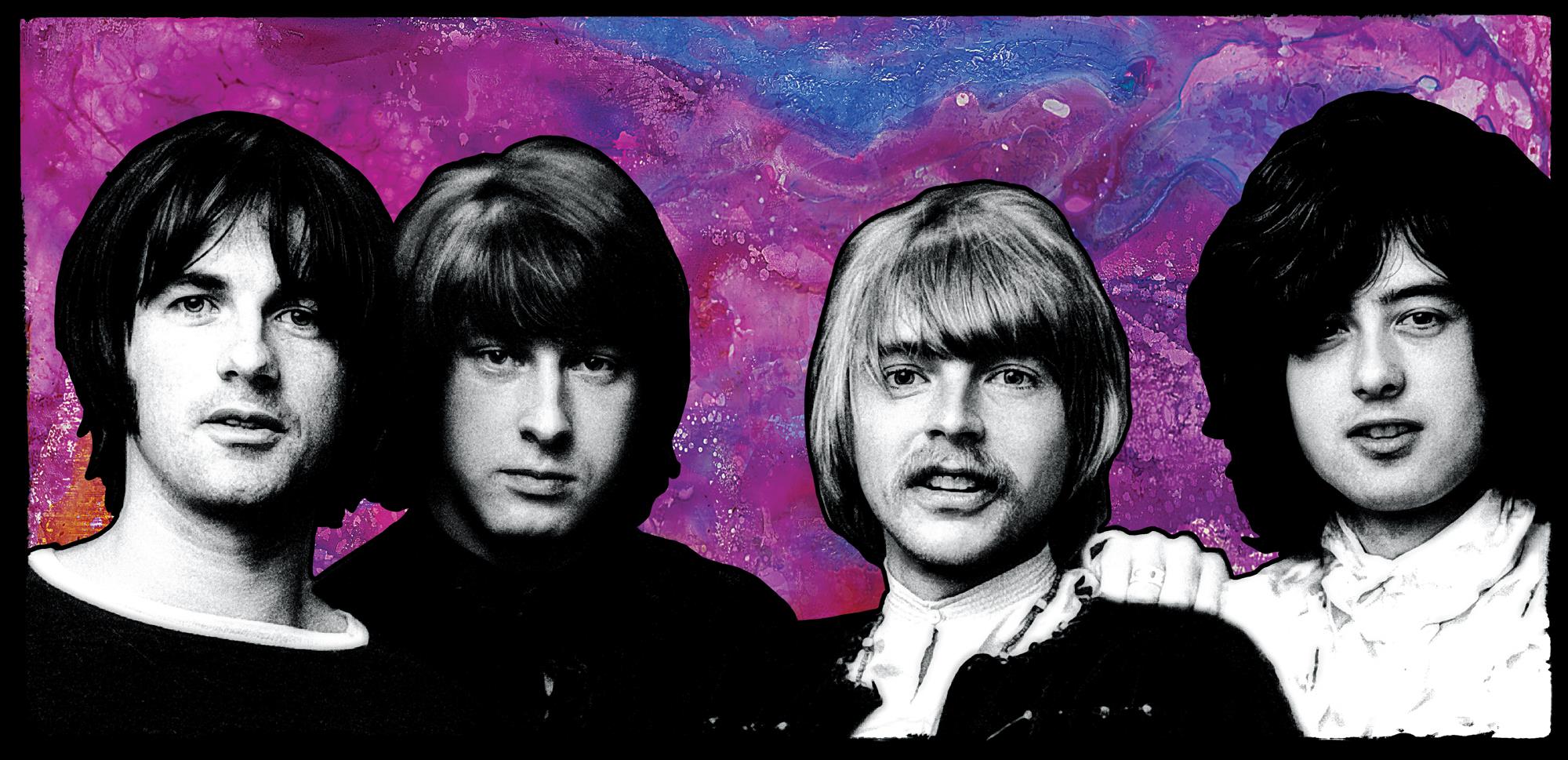Jimmy Page said in a new interview with Mojo Magazine that touring the US with The Yardbirds was “almost like slave labour.”
“As the tour went on it was almost like musical slave labour. It was absolutely horrible,” Page said of the band’s 1966 US tour. “There weren’t enough seats on the bus, so some people were sleeping in the luggage racks.
“There was a toilet that broke down after two days and Sam The Sam And The Pharaohs — the Wooly Bully guy — he had two female backing singers and there were no toilet facilities for them, which was absolutely gross. It continued to be gross when you look at how long that tour was.”
You can read the full interview with Page in the December 2017 edition of Mojo Magazine.
Elsewhere in the interview, Page recalled the band’s March 30, 1968 performance at the Anderson Theatre in New York. The show was recorded and has been remastered for the upcoming album “Yardbirds ’68” which also includes previously unreleased studio recordings.
“We turned up and did a quick rehearsal and they re-positioned the mikes,” Page said of the show, “but no one knew whether the recording was going to sound any good. That was the problem: No one had a clue.
“I would’ve preferred to have recorded a different show when we were really able to stretch out during two sets. The sets we played were different every night and there was a version of ‘I Ain’t Got You’ that was really stretched out.
“But because we were recording the show and things weren’t sounding great we did the same set twice rather than varying things so ‘I Ain’t Got You’ isn’t on there. What you hear is the set pretty much as we played it, warts and all.”
Last month LedZepNews took stills from the promotional video for “Yardbirds ’68” and used them to see what is likely to be a section of the text from the booklet that will come with the album.
Read the text here:
“pin-up status among female fans, but his look and along with his vocal delivery, onstage charisma and harmonica playing had also inspired a number of fellow musicians.
‘Keith was always very confident of what he was and what he did,’ agrees Page, today. ‘He had the image with his shades and the clothes, and he was a real individual. But his harmonica playing was utterly dazzling. He had that real agility and he liked to push things live. His presence is so strong. You can hear that on the Anderson Theatre performance. In fact, all four band members are playing really well.’
Indeed, this document of the band’s final tour underlines the well-drilled manner of the band back in ’68. Chris Dreja’s switch from rhythm guitar to bass added a certain precision to The Yardbirds sound without losing any of the band’s flair. ‘You can hear real character playing from Chris,’ nods Page. ‘There’s different tones that he uses on a lot of what you can hear on this collection. It’s great playing.’
The man stoking the fire in The Yardbirds engine room, meanwhile, is drummer Jim McCarty, whose playing is innovative, experimental and fiery. ‘He brought in a lot of swing and a lot of drive to what we did,’ confirms Page. ‘And he also wrote material in a really fantastic, unique way.’
McCarty’s contribution to The Yardbirds’ songwriting is also evident on the studio sketches that are presented on Disc Two of this collection. These recordings were made in in [sic] a few days in New York beginning on April 3, 1968, as the band attempted to start work on material that could be included on the follow-up to Little Games, the album released in the summer of ’67. Page – who himself added grit, heft, power to the band’s sound, as well as newfound sense of direction – became the de facto producer of these sessions, of which there are obvious highlights.
The opening track, Avron Knows, is an over-driven post-psych, heavy-duty number named after one of Keith Relf’s friends and all-round hipster. The lyrics – written largely by McCarty – are tongue-in-cheek as the drummer and frontman indulge in a playful call-and-answer vocal. Indeed, McCarty’s busy percussive style is also evident on this tune where Page also cuts loose.
McCarty’s lyricism is further evident on the first version of Spanish Blond included here. An acoustic showcase for Page, McCarty – whose Beat-inspired wordplay also animated the sleeve notes to the aforementioned Roger The Engineer – contributes a striking piece of spoken word to the final section of the track, creating a sense of sensual melodrama.
Page himself contributes further to the band’s songwriting with Knowing That I’m Losing You, a beautifully conceived acoustic track which Led Zeppelin fans will recognise as having been re-titled Tangerine Zep’s third studio album, released in October 1970.
All the tracks from these sessions are not fully completed, and are [unknown]. And yet, they possess a distinct character, lending the listener [unknown] have happened had this line-up of The Yardbirds continued to play together.
[PART BREAK]”
“Yardbirds ’68” will be released on November 5, and is available to purchase from Jimmy Page’s website.
There are three available formats for the album:
Here’s the tracklist:
Live at the Anderson Theatre in New York on March 30, 1968:
- Train Kept A Rollin’
- Mr, You’re A Better Man Than I
- Heart Full of Soul
- Dazed And Confused
- My Baby
- Over Under Sideways Down
- Drinking Muddy Water
- Shapes of Things
- White Summer
- I’m A Man (contains Moanin’ And Sobbin’)
Studio sketches:
- Avron Knows
- Spanish Blood
- Knowing That I’m Losing You (Tangerine)
- Taking A Hold On Me
- Drinking Muddy Water (Version Two)
- My Baby
- Avron’s Eyes
- Spanish Blood (Instrumental)
Here’s the album cover:

And here’s the inside of the gatefold sleeve:

A new opportunity with a different dimension on enjoying Jimmy Page further, the man, with his fantastic and creative musical works.Thanks Jimmy.